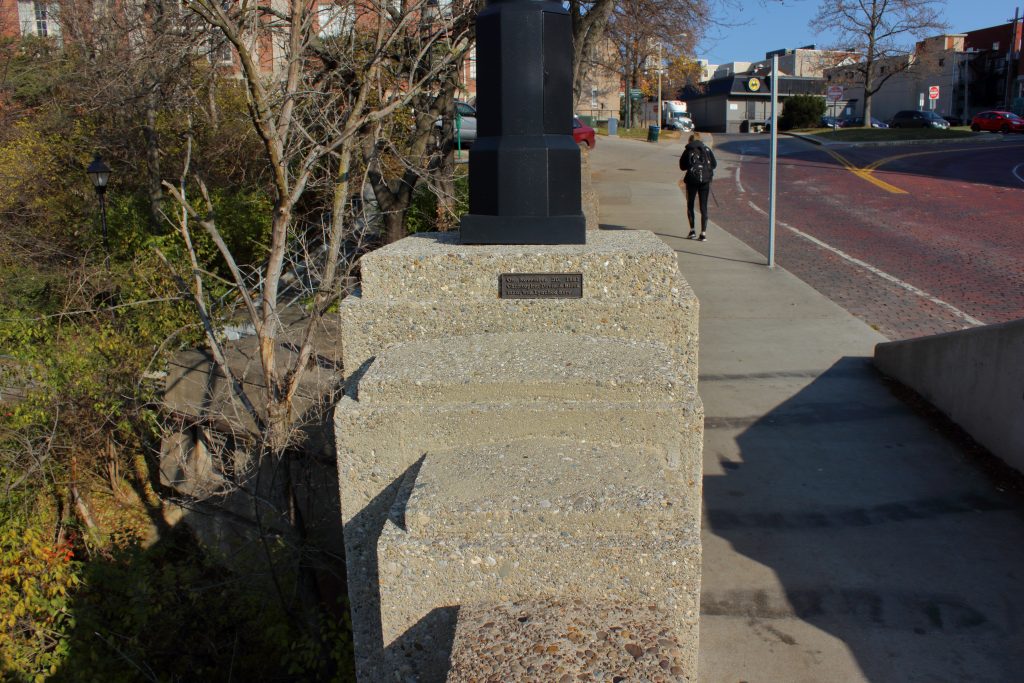Culture
OU Graduate Quinn Hunter One of Only 38 Worldwide Selected For 2020 Chautauqua Visual Arts Residency Program
By: Emily Votaw
Posted on:
Artist Quinn Hunter said she feels that she left Athens just as “things were really getting started.”
“Seeing student athletes at ten in the morning on a Saturday marching down East State Street with Black Lives Matter signs was the first time I really felt connected to Athens,” said Hunter, who graduated with a MFA in Sculpture and Expanded Practice this spring and left Athens after accepting a position as an Artist in Lecture at Wayne State University in Michigan.
Hunter had worked to find connection with Athens prior to her departure. In 2017, she learned of the 1881 Athens lynching of Christopher Davis. Hunter guerrilla installed a plaque for Davis about three years prior to the installation of an official historical marker near the site of Davis’ lynching in July.

Hunter’s work specifically examines her experiences as a black woman and her experience of genetic and ethnic inheritance.
“I can only speak for myself here, but navigating the world as a black female body, I have often have to navigate between historical and contemporary trauma and what is also authentically me — and what is happening around me,” said Hunter. “So my artwork really starts to talk about the process of that navigation. I’m only talking through my own lived experiences, but I think — and I like to hope — that a lot of people can connect to my experiences because they are not just experiences that I am having, they are experiences that a lot of women of color and people of color are having.”
In an ongoing series, Hunter explores the erasure of contemporary and historical black female labor by creating large, tapestry-like rugs with artificial hair integrations that are both sized for specific rooms in antebellum plantation houses and patterned in direct reference to the crops historically grown on those specific plantations.
“There are so many plantations across the U.S., and particularly in the south that are contemporarily being used as wedding and event venues,” said Hunter, who grew up in Charlotte, NC. “Deep down, we know what these spaces are — but there is an erasure of that when there are people getting married and having the happiest moment of their lives in a space that not even two hundred years ago people lived and died enslaved.(…) So my work is through my contemporary labor re-inscribing their erased and forgotten labor back into place.”
Hunter was also one of only 38 artists, worldwide, selected to take part in the prestigious seven-week 2020 Chautauqua Visual Arts residency program. Hunter spoke to WOUB about the residency, which was virtual this year due to the COVID-19 pandemic, as well as the themes her work explores, and her experience as an artist in Athens, in the feature embedded above.

